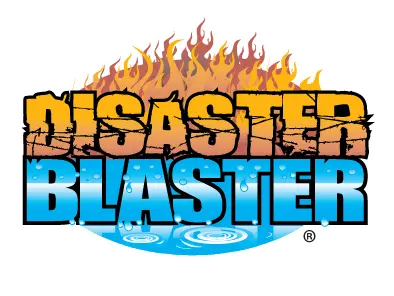Transcript
- What are some of the most common things home inspectors discover during their inspections. While this will differ by a variety of factors, including the age and condition of the home, some issues are more common than others. Here are some of the most common issues that home inspectors discover during their inspections and how you can address them. Water leaks and water damage. Home inspectors report that water damage and water leaks are among the most common problems they discovered during a home inspection. The reason water leaks can fly under the radar is because they often occur inside walls, above ceilings, under floors, or behind appliances, so homeowners may not notice them right away. Your home inspector is trained to spot these issues and they know where to look. If the home inspector discovers water damage during their inspection, that isn't necessarily cause for alarm. A qualified mitigation & restoration company like Disaster Blaster will be able to address the damage and dry the property safely and effectively. If water leaks are not addressed promptly, you could end up with a second item on our list mold. While mold issues are most often discovered in attics and basements during a home inspection, mold issues can occur anywhere inside the home, including kitchens, bathrooms, and bedrooms. During the inspection, the home inspector will look for any signs of potential mold growth and may recommend mold testing if they feel it is recommended. While mold issues can be scary, a mold issue now doesn't mean that you'll have mold problems in the future. A qualified mold remediation professional like Disaster Blaster, will be able to effectively address the mold issue and make recommendations to address the underlying cause of the moisture issue as well, so that the mold problem doesn't come back. Often, mold issues are caused by high humidity, which is often relatively easy to resolve. Radon. A radioactive gas that you can't see, taste, or smell, Radon is actually the second leading cause of lung cancer in the United States and could be in a home without you even realizing it. That's why, depending on the prevalence of Radon issues in your area, many home inspectors will recommend Radon testing as part of the inspection. If the Radon test comes back high and an issue needs to be addressed, a qualified Radon mitigation professional like Disaster Blaster is able to evaluate the needs of your property and install a Radon Mitigation System in most cases in less than a day. It's important to note that Radon levels under your home can fluctuate over time, so it's recommended to test your home every couple of years to determine if adjustments in the system may be necessary. Electrical issues. During the home inspection, the home inspector will look at the electrical system to determine if everything was installed properly and to identify any areas of concern. Improper or out of date wiring is common and may necessitate some electrical upgrades. Your home inspector will detail any electrical issues they discover as well as their severity. Any electrical concerns detailed in the inspection report should be inspected by a licensed electrician to determine if there are safety issues, as well as to make recommendations to address them properly. Roof damage. The home inspector should inspect the roof for signs of age, storm damage, or weakness, and will bring any issues they do discover to your attention. Roofing damage can occur for a variety of reasons, from hail and wind damage to fallen trees or tree branches to water damage and age. So the steps to rectify the problem will depend on the damage that was discovered. In most cases, it will be recommended to have a qualified roofing contractor inspect the roof to determine what may be necessary to address these issues properly. Insects and pests. Often an add-on to the home inspection. The home inspector can look for signs of pests or insect infestation as well. This can include mice and rodents, bats, insects like ants and termites, and more. We recommend discussing this with your home inspector to determine if it makes sense to you, but depending on the infestation, the cost of repairs can be significant. Termite damage, for instance, couldn't necessitate the replacement of structural components, decking, or siding. If an infestation is discovered, you will need two different contractors, a pest control company and a repair contractor able to repair any damage the pests caused. Would you like to take control of your future and build a business you can be proud of? We can help. As a Disaster Blaster Franchise Partner, our industry experts will help you unlock the potential of the $210 billion restoration industry. Disaster Blaster offers the most revenue streams in the restoration industry, training and support from industry experts, a unique model primed for your success, and more, call our franchise team today to learn more at 242-1042 or visit us on the web at www.DisasterBlasterFranchise.com.



